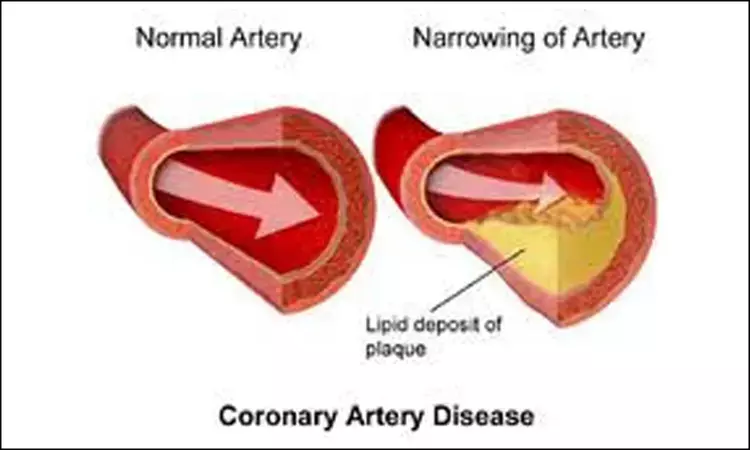- Home
- Medical news & Guidelines
- Anesthesiology
- Cardiology and CTVS
- Critical Care
- Dentistry
- Dermatology
- Diabetes and Endocrinology
- ENT
- Gastroenterology
- Medicine
- Nephrology
- Neurology
- Obstretics-Gynaecology
- Oncology
- Ophthalmology
- Orthopaedics
- Pediatrics-Neonatology
- Psychiatry
- Pulmonology
- Radiology
- Surgery
- Urology
- Laboratory Medicine
- Diet
- Nursing
- Paramedical
- Physiotherapy
- Health news
- Fact Check
- Bone Health Fact Check
- Brain Health Fact Check
- Cancer Related Fact Check
- Child Care Fact Check
- Dental and oral health fact check
- Diabetes and metabolic health fact check
- Diet and Nutrition Fact Check
- Eye and ENT Care Fact Check
- Fitness fact check
- Gut health fact check
- Heart health fact check
- Kidney health fact check
- Medical education fact check
- Men's health fact check
- Respiratory fact check
- Skin and hair care fact check
- Vaccine and Immunization fact check
- Women's health fact check
- AYUSH
- State News
- Andaman and Nicobar Islands
- Andhra Pradesh
- Arunachal Pradesh
- Assam
- Bihar
- Chandigarh
- Chattisgarh
- Dadra and Nagar Haveli
- Daman and Diu
- Delhi
- Goa
- Gujarat
- Haryana
- Himachal Pradesh
- Jammu & Kashmir
- Jharkhand
- Karnataka
- Kerala
- Ladakh
- Lakshadweep
- Madhya Pradesh
- Maharashtra
- Manipur
- Meghalaya
- Mizoram
- Nagaland
- Odisha
- Puducherry
- Punjab
- Rajasthan
- Sikkim
- Tamil Nadu
- Telangana
- Tripura
- Uttar Pradesh
- Uttrakhand
- West Bengal
- Medical Education
- Industry
Low vaspin levels linked to increased coronary artery disease

Researchers have found that low serum vaspin levels are associated with coronary artery stenosis. Plasma vaspin concentration reflects possible endothelial dysfunction in CAD patients and correlates with CAD severity. Plasma vaspin concentration is associated with metabolic syndrome and obesity parameters.
The relationship between serum vaspin levels and metabolic or coronary artery disease is currently of interest for researchers. Although adipokine concentrations have been shown to be increased significantly in atherosclerotic lesions, the role of adipokines in the atherosclerotic process remains to be elucidated.
Researchers at the Department of Cardiology, Adiyaman Education and Research Hospital, Adiyaman, Turkey have conducted a study to find out associations between Vaspin Levels and Coronary Artery Disease.
Vaspin is a new biological marker of CAD. Low serum vaspin levels are associated with coronary artery stenosis. Plasma vaspin concentration reflects possible endothelial dysfunction in CAD patients and correlates with CAD severity. Plasma vaspin concentration is associated with metabolic syndrome and obesity parameters. The ultimate goal regarding vaspin is to detect and prevent diseases caused by atherosclerosis, as well as to preserve vascular health and contribute to public health.
Vascular inflammation triggered by vaspin inhibits atherogenesis by suppressing macrophage foam cell formation and vascular smooth muscle cell migration and proliferation. Vaspin also contributes to plaque stabilization by increasing collagen content and reducing the intraplaque macrophage to vascular smooth muscle cell ratio. The therapeutic goal concerning vaspin is to fight atherosclerosis and related diseases, as well as to maintain vascular health.
CVIA is available on the IngentaConnect platform and at Cardiovascular Innovations and Applications. Submissions may be made using ScholarOne Manuscripts. There are no author submission or article processing fees. CVIA is indexed in the EMBASE, ESCI, OCLC, Primo Central (Ex Libris), Sherpa Romeo, NISC (National Information Services Corporation), DOAJ and Index Copernicus Databases. Follow CVIA on Twitter @CVIA_Journal; or Facebook.
For more details click the link: http://dx.doi.org/10.15212/CVIA.2019.0565
Hina Zahid Joined Medical Dialogue in 2017 with a passion to work as a Reporter. She coordinates with various national and international journals and association and covers all the stories related to Medical guidelines, Medical Journals, rare medical surgeries as well as all the updates in the medical field. Email: editorial@medicaldialogues.in. Contact no. 011-43720751
Dr Kamal Kant Kohli-MBBS, DTCD- a chest specialist with more than 30 years of practice and a flair for writing clinical articles, Dr Kamal Kant Kohli joined Medical Dialogues as a Chief Editor of Medical News. Besides writing articles, as an editor, he proofreads and verifies all the medical content published on Medical Dialogues including those coming from journals, studies,medical conferences,guidelines etc. Email: drkohli@medicaldialogues.in. Contact no. 011-43720751


